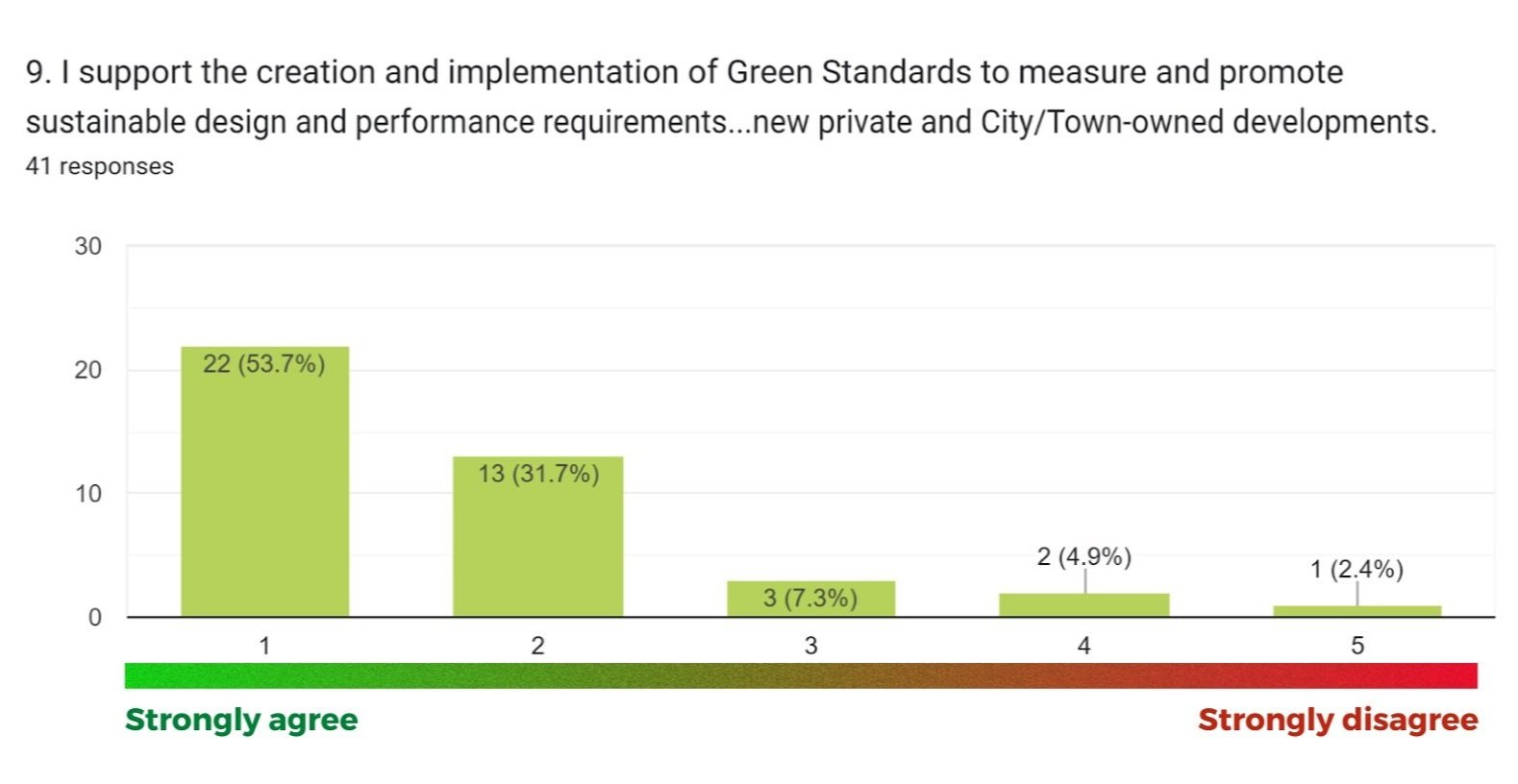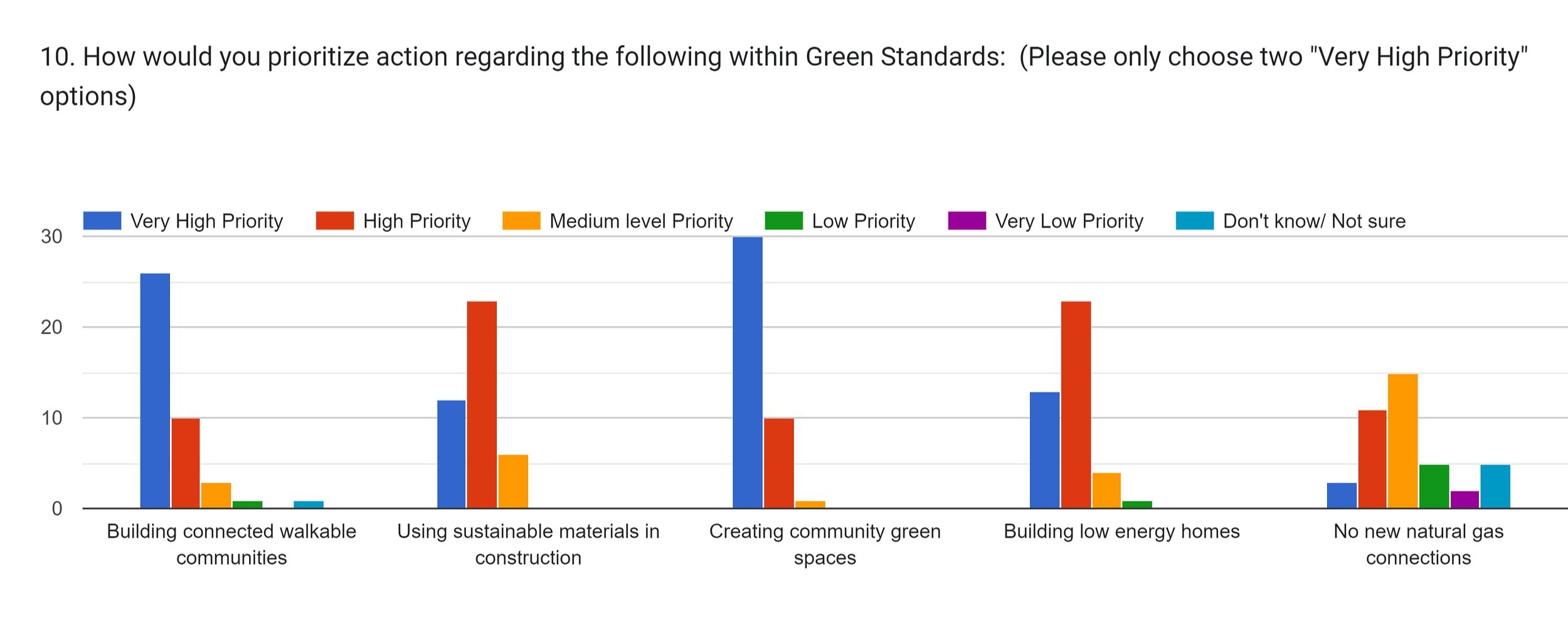The Windsor-Essex municipal elections are just around the corner—Monday, October 24th (with early polling already available in some municipalities)—and in preparation, we sent out a questionnaire to candidates across all municipalities in the region to better understand their stances on climate change and sustainability.
Staying on top of platforms and issues in a sea of information can be overwhelming; our goal is to equip you with knowledge about where your potential representatives stand regarding climate change mitigation and resilience building—pivotal information you can bring with you to the polls.
Why Do We Need Our Councillors to be Informed on Climate Change?
Original Cartoon ‘The Recession’ (Mackay Cartoons, 2020) Quote: A Crisis is a terrible thing to waste (Romer, P, 2004)
The importance of climate change is often overlooked and underrepresented in daily decision-making. It isn't surprising that it's therefore given less priority when discussing other issues, like the recession and the pandemic. However, did you know that climate change is closely linked to these pressing topics and others? As the climate crisis worsens, so does everything else that is interconnected in our global system. It becomes more expensive to live; the prices for energy, food, rent, etc. skyrocket. In fact, costs as a result of climate change could be six times higher than previously thought. Imagine going shopping for groceries—$2 white bread is now $12, $5 milk is now $30, and $12 salmon is now $72. Not to mention, quality of life will worsen with all the environmental damage; smog from Detroit, algae ridden lakes, drought-induced yellow vegetation etc. In scenarios like these, municipal decision-making plays a very important role, for municipalities are often on the forefront of experiencing these changes first-hand. With the gravity of such hefty decisions resting on their shoulders, it is imperative to ensure that the people voted in to represent our communities are competitive and driven to solve these challenges. While we cannot expect candidates to be experts of all issues, we should expect them to be aware and to care.
Breaking It Down
We asked candidates about their stance on a variety of climate and sustainability-related governance issues. This is in an effort to bring their climate agendas front and center, to inspire potential voters to engage and vote, and to emphasize climate action to candidates from the standpoint of their electorate. From action on greenhouse gas reductions to sustainability in the development/construction industry, green economy building to community engagement—we covered it all! With 41 responses total, most come from Windsor, followed by Lakeshore, and Kingsville.
We’ve summarized larger trends to provide an overview of where our local politics are leaning, pertinent climate issues and corresponding possible solutions, and what we can look out for as informed voters in local government.**
Looking for individual candidate responses ?
check out candidate responses here
〰️
check out candidate responses here 〰️
How are you planning to reduce energy usage and greenhouse gas emissions in your City/Town?
When it comes to reducing energy usage and greenhouse gas emissions, transportation features at the top of respondents' priority lists. In particular, promoting active, accessible, and electric transportation.
-
Walkable communities (neighbourhoods where all essential needs are located within walking distance)
More bike lanes, trails, transit routes and relevant active transportation infrastructure
Increased accessibility via subsidization to electric scooters/bikes
Electrification of City/Town fleets and public transportation
Embracing and promoting the City’s Active Transportation Master Plan (ATMP)
-
Lower greenhouse gases and energy consumption
Better air quality
Savings (on gas and travel)
Less traffic congestion
Better overall health (from air quality and increased movement)
Higher community interactivity
More local business growth
-
Respondents also mentioned the following possible actions:
Requiring sustainability plans from businesses
Retrofitting buildings with GHG reducing solutions
Generating hydro power from the river
Increasing solar panel installations
Increased tree planting, protecting green spaces
-
Active transportation (any human-powered mode of moving, as well as bussing and carpooling), accessibility (making sure everyone has movement options to choose from regardless of any limitations), and electric transportation (vehicles powered by electricity) all contribute to the environment by eliminating toxic tailpipe emissions. These emissions make up a huge chunk of community greenhouse gas emissions (ex. in Windsor it's 40%) thus reducing them will make a big difference.
The use of electric vehicles (EVs) is nuanced—their manufacturing method (mining of precious resources), energy source (green or not), and recycling systems (batteries) will dictate whether or not they do more harm than good
Certain municipalities have Active Transportation Master Plans (ATMPs) in place and available for public perusal on their respective websites (you can find Windsor's here)
There is some concern expressed over the proposed mega hospital, which are linked to an increased carbon footprint from the size of construction, and reduced accessibility.
We also asked candidates how they felt about supporting and promoting the implementation of Community Energy Plans, aimed at reducing regional greenhouse gas emissions and energy consumption. Here’s the general trend of responses.
How do you plan to manage risk from climate impacts (like extreme heat and flooding) to public and private infrastructure?
The most prevalent climate impacts we experience in the Windsor-Essex region today include flooding, extreme heat, and storms with increased severity and frequency, all of which cause damage to public and private infrastructure. Therefore, it becomes necessary for councillors to prioritize and promote proactive decisions that will help reduce the extent of physical, social, economic, health-related and environmental damage from these impacts.
-
Building and maintaining reservoirs
Rethinking public and private landscaping
Creating swales, vernal pools, temporary ponds, etc.
Encouraging the use of rain barrels and rain gardens
Enhancing the sewer system
Installing water fountains/bottle refill stations
Preparing a snow removal plan for the winter months
Following the ERCA flood planning tools and the Drainage Act
-
Decreased risk of damage to public and private infrastructure
Decreased costs to taxpayers from preparedness
Ecological benefits due to working with the land (increased pollinator activity, greater oxygen filtration from trees, wetlands etc.)
Increased community-level preparedness
Greater resilience to extreme weather events so that daily life can continue relatively as normal as usual
-
When it comes to managing floods, many proposed actions highlight the importance of responsible land-use. It is essential to integrate man-made solutions (such as sewer systems and water treatment plants) with nature-based solutions (swales, vernal pools, and rain gardens are all landscaping options that allow water to collect and seep into the ground slowly).
Planting trees was by far the most common suggestion, especially as trees not only help with flooding (by absorbing water), but they also protect from severe storms (by blocking wind) and reduce extreme heat (by creating shade). Extreme heat and resulting droughts also necessitate water. Thus, water conservation and ensuring water access is of utmost importance.
We asked candidates how much importance they placed on funding climate resilience-building projects. Here’s how they responded.
How will you ensure equitable access to vital resources (like clean water, emergency services, etc.) for all?
It has been stated in research and through observed data that marginalized communities are typically the worst affected from any massive societal change. Homelessness is a key issue in Windsor-Essex, which will be exacerbated by climate change. Research from the Social Sciences and Humanities Research Council says, “…climate change compromises the housing and living circumstances of impoverished peoples, creates homelessness through waves of climate migrants, and drives suffering and deteriorating health for those most exposed to weather extremes.” Therefore, equitable access is a key driver for decision-making in climate impacts.
When it comes to equitable access to vital resources, candidates highlight marginalized voices, fund allocations, and emergency services.
-
Supporting initiatives for clean and safe drinking water (such as installing water fountains in communities)
Requiring annual equity training
Renovating emergency shelters in order to provide adequate service with long-lasting positive impacts, such as mental health services, harm reduction programs, life skills training, etc.
Enhancing water conservation
-
Improved support and accommodation for marginalized people
Healthier, more equitable communities
Greater resource conservation and equitable allocation across vulnerable communities
Reducing poverty conversion
-
Establishing extensive research and testing of lake systems beyond WECHU
Rehiring all fired EMS workers and/or hiring new ones to ensure ample emergency service personnel
Removing fluoride from the water supply
Adhering to the 2015 federally funded initiative : "Advancing Equity and Inclusion: A guide for Municipalities"
-
Those who experience marginalization know their needs best, thus it's essential for their voices to be heard so that subsequent appropriate and effective actions can be taken. To facilitate this, marginalized people must be given opportunities and platforms to speak, and education/training must be enforced so that others are ready to listen and respond appropriately. Funds must be set aside with the goal of investing in and ensuring equitable access, and self reliance initiatives must be supported for when monetary contributions are not enough.
Emergency services must also be renovated. Greater resources and housing options should be available for vulnerable communities, especially as homelessness in Windsor grows (up 27% in 2021) and housing becomes increasingly unaffordable. Both the housing crisis and the climate crisis are closely linked, and the environment's worsening state will only exasperate these already present issues.
Most respondents rate their commitment to closing the equity gap—as it pertains to effects of climate change on vulnerable communities—as fairly high.
How will you undertake the promotion of community and individual level climate action?
On what steps they would take to promote eco-friendly action, candidates put an emphasis on education, green spaces, gardening, and neighbourhood hubs.
-
Support and creation of promotional programs, grass-root environment initiatives, environmental themed days/activities/festivals/events
Creation of neighbourhood hubs and more green spaces
More community gardens
Adjusted property tax in favour of more trees planted
-
More opportunities to spend time outdoors and improve overall health
Lowered crime rates
Greater food security (through personal or public gardens)
Increased pollinator activity (Ontario pollinators have dropped in population, with some losses between 25-99%)
Savings for those partaking (on gas and groceries)
-
Responsibly developing waterfront areas
Making eco improvements to public spaces (like more trees for shade in the summer)
Making bikes and scooters less susceptible to theft
Organizing park clean-ups
Reducing waste and increasing sustainable recycling
-
Education is key in creating a sustainable future. Climate change is a globally acknowledged problem, but the ways in which it affects daily living, economy, equity, etc. are less recognized. Spreading awareness is the first step in making a change as well as in shifting towards a cultural rennaissance that prioritizes sustainability. Part of this shift will also be fuelled by changes in the way we live. By creating green spaces (open pieces of undeveloped land that are accessible to all (like parks)) and neighbourhood hubs (where all essentials are within walking distance), we're given greater opportunites to choose green living. As a more active option, planting gardens (private and/or communal) are also proposed.
When asked to rate the level of their commitment in promoting sustainability and climate action at the community/individual level, most candidates gave a high rating.
What steps might you take to protect natural heritage, endangered species and ecologically sensitive areas?
To protect our ecology, candidates highlight the importance of supporting environmental protection programs, green spaces, and the planting of native plants.
-
Free native plants from greenhouses during the spring and fall planting seasons
Increased protection and support for green spaces
Tourism in Ojibway park
-
Repopulation of species that are endangered or at risk
From tourism, more funds generated in favour of ecological preservation
Prevention of habitat loss
Greater interest in and knowledge of native wildlife
-
Protection programs and green spaces give nature a chance to heal itself without the trouble of human intervention. These programs include the Brownfields Redevelopment ("brownfields" meaning contaminated/underused properties), the Gordie Howe Bridge project, and the Herb Gray Parkway—all local. These projects redesign urban terrain to accommodate our modern needs while refusing to compromise on ecological health.
As nature returns to these spaces, so do native plants. This revival can be multiplied with local efforts, by planting native species. As a result, falling pollinator populations and other animals will get a much needed boost. Conscious of the risk status of monarch butterflies, the University of Windsor planted milkweed in 2016 (which monarchs depend on) and saw the fruits of their labour within the year. The monarch-hosting milkweed plants native to Canada, among other native plants, will not only grow more easily (as they are adapted to the climate) but will also breathe life back into green spaces (and even city spaces) as wildlife returns.
How are you planning to promote Green development and construction practices?
As defined by the Clean Air Partnership, “Green Development Standards (GDS) are voluntary or mandatory measures created by municipalities to encourage environmentally, socially, and economically sustainable design.”
When commenting on green development and construction practices, candidates list power source, material choice, and recycling as important elements.
-
Updated website information on recycling so it is easily accessible and very educational
Establishing community recycling days to increase accessibility
Promoting other lesser known forms of recycling, like grasscycling and composting
Investing in the hemp industry (hemp biodegradable plastics, insulation, and building materials)
New building projects inspired by new urbanism (in which houses are designed to be as passive as possible on the environment)
Harnessing the Detroit River's hydroelectric power
-
Less waste and an increased rate of proper recycling
Reduced strain on our ecology
Renewable energy
-
Many respondents view electricity as the future. Though this kind of power may be intuitively considered green, that's not quite the case as it can be generated in an array of ways, including through the use of fossil fuels and nuclear power.
As for material choices, builders and businesses should be given incentives to choose sustainable options. They should also be encouraged to engage in proper recycling. Though recycling seems like a well established practice that conserves resources, saves energy, and cuts down on landfill waste, it is far from perfect. Despite a recycling system that requires some major changes, proper recycling and waste management at the individual, communal, and business levels are vital.
When asked to rate the level of their commitment in promoting green development and construction practices, most candidates gave a high rating.
What steps might you take to support farming and manage the agriculture sector in a way that prioritizes land-use and environmental preservation?
To support farming and agriculture in a way that is in line with preserving environmental health and efficient land-use planning, candidates discuss farming practices, markets, and urban life.
-
Planting clover (which absorbs nitrogen from the air and infuses it back into the soil thus reducing need for nitrogen fertilizer)
Promoting no-till farming and other soil conservation practices
Opting for organic polycultures (the more diversity the more resilience)
Increasing the duration and visibility of farmer's markets
Partaking in CSA baskets (Community Supported Agriculture baskets) and food co-ops—two ways to buy local, seasonal food directly from local farmers with an array of benefits on both sides
Limiting urban sprawl (uncontrolled urbanization of land)
-
Greater preparedness to climate change impacts on farming
Diversified on-farm uses
Strengthened local economy
Greater community strength and reliance
Improved connections with local farmers
Reduced power for monopolies
-
Many farmers are already doing great work by employing environmentally sustainable practices, such as crop rotation, rotational grazing for livestock, and composting manure. The goal is to support and incentivize these efforts, as well as introduce more sustainable actions.
As for markets, there are two to watch out for: Farmers’ markets and supermarkets. Farmers’ markets put an emphasis on our local farmers, and thus should be supported so that farmers can increase profit locally. In this case, farmer's markets would see an increase in duration and visibility. As for supermarkets, they produce huge waste. In many instances, it's more profitable to throw away food than to donate. While this is a multilayered issue to tackle, one tactic would be to become self sustained (via personal and community gardens, as well as by shopping local) and reduce need for supermarket produce.
While farming isn't at the center of urban life, city dwellers can also do their part by engaging practices that reduce reliance on supermarkets, give back to the farmers, and limit urban sprawl.
In conclusion…
Ultimately, our sustainable future relies heavily on prevention, preservation, and participation. We must adopt an ethics of care—centred around caring, sharing, and cooperating—to mitigate the effects of climate change as they manifest now and in the future.
We would like to formally thank all candidates for their time in answering the questionnaire and their dedication towards building sustainable communities.
Looking for individual candidate responses for your municipality?
**Disclaimer: While not every climate issue addressed in the questionnaire is applicable to every municipality (as there are differences based on geography, industry, economics and current policies), most are relevant to Windsor-Essex and would fall under the purview of municipal governance and proaction.








